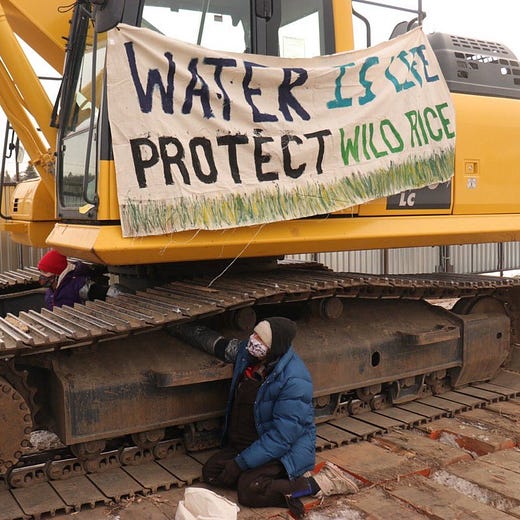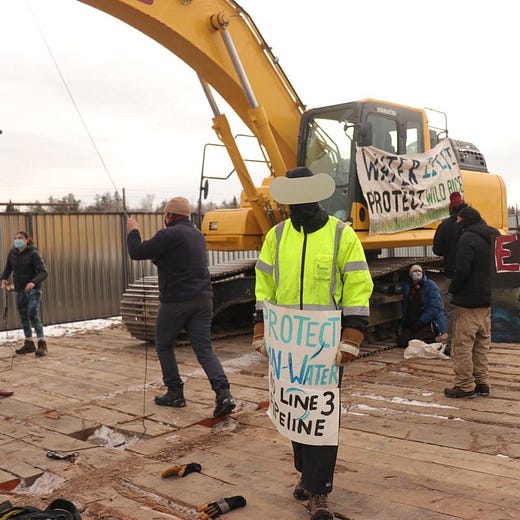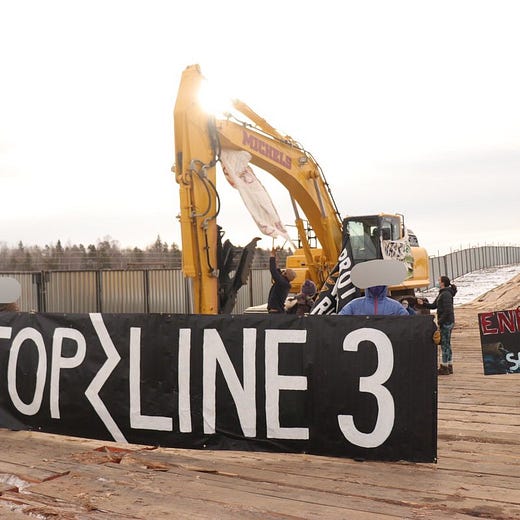Happy Thanksgiving from EXXONKNEWS!
We’re grateful for you, EXXONKNEWSers.
We’re taking a bit of a breather this week to Zoom with family and stuff ourselves silly (definitely haven’t been doing that all pandemic). But first, let me just say: we are so grateful for you, readers, for being part of this movement to hold fossil fuel giants accountable as we fight for justice, a stable climate, and a livable world.
Instead of a traditional EXXONKNEWS, we also wanted to take a moment to recognize the tremendously important work Indigenous communities and organizers are doing on the front lines of this movement.
This year, we looked at just a few of the ways Indigenous peoples experience a lion’s share of the multi-layered disasters of fossil fuel pollution and the climate crisis. In North Carolina, members of the Lumbee tribe, the state’s largest Native population, are still struggling to rebuild homes that now sit in the path of the planned 600-mile Atlantic Coast Pipeline, where the devastation of hurricanes Matthew and Florence coincided with toxic coal, chemical and agricultural pollution. In Arizona, this summer’s severe wildfires wreaked havoc on the Navajo Nation, where families were already battling the highest rates of COVID-19 infection in the country on top of the long-lasting health impacts of coal and uranium mining. In Minnesota, where Attorney General Keith Ellison filed a climate accountability lawsuit on behalf of the state this year, Indigenous communities are now up against newly approved permits for a giant oil pipeline that would violate tribal rights and escalate local climate damages.
This is nothing new, of course: since European colonizers arrived in America, Indigenous peoples have been forced to bear the costs of environmental harm, the spread of disease, mass displacement, and all the other consequences of prioritizing profit over human life.
But across the country, Native communities are leading the charge to bring polluters to justice. Whether that’s organizing opposition to climate-wrecking oil and gas pipelines, demanding that elected officials across the aisle say no to bribes from fossil fuel companies, or supporting climate liability lawsuits spanning from Minnesota to Maui, these communities are doing everything they can to confront a crisis they did nothing to cause. As part of their accountability efforts, governments seeking damages from oil and gas companies need to prioritize the resilience, recovery, and leadership of Indigenous peoples.
After all, righting wrongs — however entrenched, unchangeable, and almost normal they might seem — is what this movement is all about.
ICYMI News Roundup
President-elect Biden has chosen former secretary of state John Kerry as his “climate envoy.”
We’ll be watching to see if Kerry distances himself from former fossil fuel-friendly stances.
Note to all my concerned readers who reached out: Why YES, I did spell “ado” wrong in last week’s issue if you received the email. No, it was not a failed pun, I was just so excited to interview Bill McKibben that I missed the error. I WON’T FAIL YOU AGAIN. Probably.
Until next week!





